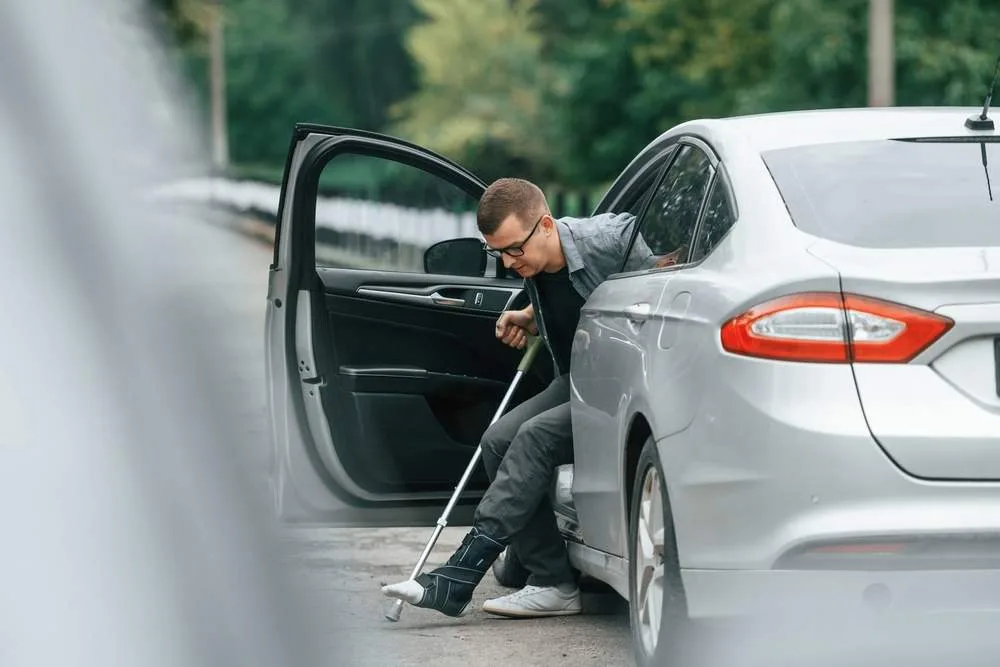Experiencing dizziness or a spinning sensation after a car accident can be both alarming and confusing. You might wonder, can a car accident cause vertigo? The answer is yes. Even minor collisions can lead to injuries that disrupt your body’s balance system, resulting in vertigo. Understanding the connection between car accidents and vertigo is important for seeking appropriate care and starting your recovery process. Consulting with experienced car accident chiropractors can help you regain your desired well-being.
What Is Vertigo?
Vertigo is a specific type of dizziness characterized by the false sensation that you or your surroundings are spinning or moving. Unlike general lightheadedness, vertigo often feels like a whirling or tilting motion, even when you’re stationary. This sensation can disrupt your balance and make everyday activities challenging.
The underlying cause typically involves issues within the vestibular system, which includes parts of the inner ear and brain that help control balance and eye movements. When affected, this system can send incorrect signals to the brain, leading to the disorienting feelings associated with vertigo.
Can a Car Accident Cause Vertigo?
Yes, a car accident can cause vertigo. The sudden force of a collision can affect key areas of the body responsible for balance, including the neck, brain, and inner ear.
When these systems are injured—whether through whiplash, head trauma, or inner ear disruption—your sense of balance and spatial awareness can be thrown off, leading to vertigo.
It’s also important to note that vertigo doesn’t always show up right away. In many cases, symptoms may appear days or even weeks after the accident. This delayed onset can make it harder to link the vertigo to the crash, which is why it’s crucial to monitor your symptoms and seek medical care if anything feels off in the days following an accident.
Common Causes of Vertigo After a Car Accident

Several injuries sustained during a car accident can lead to vertigo. Understanding these can help in identifying the root cause and seeking appropriate treatment:
- Whiplash: This injury occurs when the neck experiences a rapid back-and-forth motion, commonly in rear-end collisions. Whiplash can damage the cervical spine, muscles, and ligaments, potentially leading to cervicogenic dizziness—a type of vertigo originating from neck issues.
- Concussions or Traumatic Brain Injuries (TBI): A sudden blow to the head during a car accident can cause the brain to move within the skull, leading to a concussion or more severe TBI. These injuries can disrupt the brain’s ability to process balanced information, resulting in vertigo.
- Inner Ear Damage: The inner ear contains structures vital for balance, such as the vestibular system. A car accident’s impact can damage these delicate structures, leading to vertigo.
- Delayed Onset: In some cases, vertigo symptoms don’t appear immediately after the accident. Inflammation, swelling, or gradual damage to the balance systems can cause symptoms to develop days or even weeks later.
Read: What Causes Delayed Vertigo After a Car Accident
Symptoms of Vertigo to Watch For After a Car Accident
Recognizing the signs of vertigo early can lead to timely treatment and prevent further complications. If you’ve been in a car accident, be attentive to the following symptoms:
- Spinning Sensation: Feeling as though you or your surroundings are moving or spinning, even when stationary.
- Balance Issues: Difficulty maintaining balance, leading to unsteadiness or a tendency to veer to one side while walking.
- Nausea and Vomiting: The disorienting sensation of vertigo can lead to gastrointestinal discomfort.
- Headaches: Persistent or severe headaches, which may indicate a concussion or other head injury.
- Blurred Vision: Difficulty focusing or experiencing visual disturbances.
- Hearing Changes: Ringing in the ears (tinnitus) or a feeling of fullness in the ear.
- Fatigue: Feeling unusually tired or lethargic, which can be a response to the body’s efforts to compensate for balance issues.
Treatment Options for Post-Car Accident Vertigo
Experiencing vertigo after a car accident can be disorienting. Fortunately, several treatment options are available to help alleviate symptoms and promote recovery. It’s important to consult with healthcare professionals to determine the most appropriate approach based on individual circumstances.
Chiropractic Care
Chiropractic care focuses on diagnosing and treating musculoskeletal disorders, particularly those related to the spine. After a car accident, misalignments in the cervical spine can contribute to vertigo symptoms. Chiropractors employ specific adjustments and manipulations to realign the spine, which may alleviate pressure on nerves and improve balance. This approach can be beneficial for individuals experiencing cervicogenic dizziness, a type of vertigo originating from neck issues.
At Affordable Chiropractic Killeen—a trusted chiropractic therapy provider—our experienced chiropractic team provides comprehensive evaluations and personalized chiropractic care to address post-accident vertigo. We are committed to helping patients regain stability and enhance their quality of life.
Medications
Medications can play a role in managing vertigo symptoms, especially when they are severe or persistent. Commonly prescribed medications include:
- Antihistamines: These can help reduce dizziness and nausea associated with vertigo.
- Antiemetics: Useful for controlling nausea and vomiting.
- Vestibular suppressants: Such as benzodiazepines, may be prescribed for short-term relief of severe vertigo episodes.
It’s essential to use these medications under the guidance of a healthcare provider, as they may have side effects and are typically recommended for short-term use.
Vestibular Rehabilitation Therapy (VRT)
VRT is a specialized form of physical therapy aimed at alleviating symptoms caused by vestibular disorders. This therapy involves exercises designed to improve balance, strengthen the vestibular system, and reduce dizziness. Techniques may include gaze stabilization, habituation exercises, and balance training. VRT is particularly effective for individuals whose vertigo is due to inner ear problems or neurological conditions.
Physical Therapy
Physical therapy can be beneficial for those whose vertigo stems from musculoskeletal issues, such as whiplash or neck injuries sustained during a car accident. Therapists develop individualized exercise programs to strengthen neck muscles, improve posture, and enhance overall stability. This approach can help reduce dizziness.
Self-Care Practices to Alleviate Vertigo After a Car Accident
In addition to professional treatments, certain self-care practices can aid in managing vertigo symptoms at home:
- Gentle Exercises: Engaging in slow, controlled movements can help your body adjust to balance challenges. Exercises like the Epley maneuver may be beneficial, but it’s advisable to consult a healthcare provider before attempting them.
- Adequate Rest: Ensuring sufficient sleep and taking breaks during the day can help your body heal and reduce vertigo episodes.
- Hydration: Maintaining proper fluid intake supports overall health and can prevent dizziness related to dehydration.
- Stress Management: Practices such as deep breathing, meditation, or gentle yoga can help reduce stress, which may exacerbate vertigo symptoms.
Steps to Take If You Suspect You Have Vertigo After a Car Accident
Recognizing and addressing vertigo symptoms promptly can prevent complications and facilitate recovery. If you suspect you have vertigo following a car accident, consider the following steps:
- Seek Medical Attention: Consult a healthcare provider to evaluate your symptoms and determine the underlying cause. Early diagnosis is key to effective treatment.
- Document Symptoms: Keep a detailed record of your symptoms, including their frequency, duration, and triggers. This information can assist healthcare professionals in developing a tailored treatment plan.
- Follow Treatment Recommendations: Adhere to the prescribed treatment regimen, whether it includes medications, therapy, or lifestyle modifications. Consistency is crucial for improvement.
- Avoid Triggers: Identify and minimize exposure to factors that worsen your symptoms, such as sudden head movements or bright lights.
- Stay Informed: Educate yourself about vertigo and its management. Understanding your condition can empower you to make informed decisions about your care.
Find Lasting Relief from Vertigo at Affordable Chiropractic Killeen
Experiencing vertigo after a car accident can disrupt your daily life and well-being. Understanding how car accidents can cause vertigo is the first step toward seeking appropriate care. Addressing the root causes through professional treatment and self-care practices can significantly improve your symptoms.
At Affordable Chiropractic Killeen, we are committed to helping you recover from car accident-related injuries, including vertigo. Our services encompass chiropractic care, spinal decompression, and targeted therapies designed to restore your balance and quality of life.
Don’t let vertigo control your life—book an appointment with us today to start your journey toward recovery.

